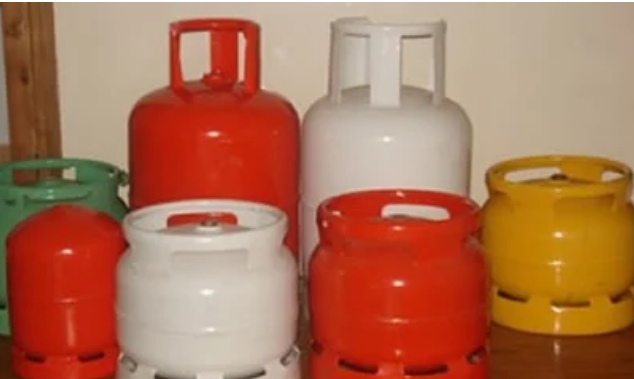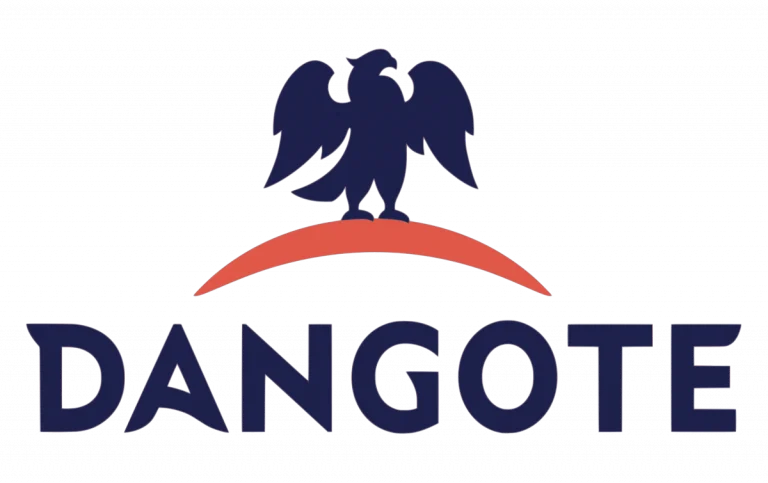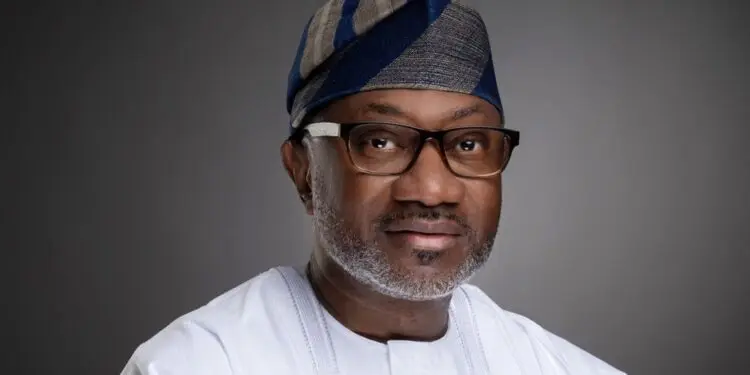Business
Cooking Gas Price Jumps By 240% As Marketers Halt Imports

Importers of Liquefied Petroleum Gas, popularly called cooking gas, have stopped importing the commodity, The PUNCH reports.
Investigations also show that the cost of the product increased by 240 per cent for 12.5kg, jumping from N3,000 to N10,200 between January and October.
About 65 per cent of LPG is imported into Nigeria, while domestic production accounts for 35 per cent, hence the halt in imports could further shoot up cooking gas price if the situation is not addressed.
The Executive Secretary, Nigerian Association of Liquefied Petroleum Gas Marketers, Bassey Essien, told our correspondent on Monday that the reintroduction of customs duty and Value Added Tax on imported LPG were the basic reasons for the halt in its imports by importers.
He stated that there were several other issues and stressed that if the halt in LPG imports should drag further, the supply of the commodity domestically could suffer severe drop.
READ ALSO: Adesina’s Attack On Clergy: Afenifere Knocks President’s Aide
This came as NALPGAM in an open letter to the Minister of State for Petroleum Resources, Chief Timipre Sylva, urged the minister to urgently intervene in the skyrocketing price of LPG in Nigeria.
The open letter was signed by the National President, NALPGAM, Olatunbosun Oladapo, and Essien. NALPGAM is the umbrella body of operators of LPG bottling plants licensed by the statutorily empowered government agencies to carry out the business of safe bottling of cooking gas.
Essien stated that due to the fears expressed by importers who had stopped importation of LPG into the country, cooking gas sourced from the Nigeria Liquefied Natural Gas company was now selling in the region of N11m per 20 metric tonnes truck.
This, he said, was with a cumulative daily increase of N300,000 to N500,000 per 20MT truck without the imposition of VAT and customs duties.
Providing further explanation on this, Essien said, “The NLNG supplies LPG to the terminals and these terminals sell to the marketers and at times in a day, the price can go up by about three times.
“Take for example, I was granting an interview on Saturday morning on this same issue and that morning some terminals were selling for N11.6m to N11.7m, but as I stepped out of the interview, it had increased to N12m.
“And the annoying part is that since about a week or two now, nobody has been importing gas because of the issues with customs and VAT. And this is because since the position on these issues have not been clearly stated, importers have to pause.”
He added, “The customs is even clamping down on importers and so they cannot import anything, which means that the product in circulation across the country is from the NLNG.
“But when there are issues like this, some unscrupulous people will want to capitalise on the situation, which they are doing, because right now, from what we’ve got, the price at which NLNG product gets to Lagos is about N7m, but you get it at N11m and above.”
On the price increase, the association stated that despite the decade of gas policy and measures by government, the cost of cooking gas had continued to rise.
It said, “Despite the strategies employed by the government with its anticipated benefits, the reverse seems to be the case with the bulk of LPG consumed in the country largely imported.
“The availability of the product for domestic consumption has been skewed majorly to 65 per cent import dependence while only 35 per cent has been attributed to local supply.
“The obvious devaluation of the local currency, inability to access foreign exchange by importers, the increasing international price against which the cost of domestic LPG is indexed as well as the anticipated re-imposition of VAT and customs duties with retrospective application have all contrived to push the price of LPG upward.”
NALPGAM added, “It has been observed that the above factors have seriously increased the price of gas to the extent that a 12.5kg gas which sold for N3,000.00 in January, 2021, now sells for between N10,000 to N10,200, depending on area of the country.
“The daily galloping price of gas if not properly handled may derail the lofty ideals of the gas expansion plans of the government as well as the job opportunities the programmes were intended to create.”
The association stated that the price of LPG had exponentially skyrocketed over the last few months.
It said the cost of 20MT of LPG as of January 2020 was N3.4m, but by December 2020, it had gone up to N5.4m; N5.6m in January, 2021, N6m in February, 2021 and N11m in October, 2021 without any signs of abatement.
READ ALSO: Nigeria’s Budget 2022 And Debt Service Implication [ANALYSIS]
Officials at the Federal Ministry of Petroleum Resources and the Nigerian National Petroleum Company Limited promised to revert when contacted.
Sylva had in August this year described LPG as a deregulated product and stated that government could not determine its price, but promised to meet with marketers on concerns about the persistent price hike.
(PUNCH)
Business
NNPCL Announces Restoration Of Escravos-Lagos Pipeline

The Nigerian National Petroleum Company Limited (NNPCL) has announced the complete restoration of the Escravos-Lagos Pipeline System (ELPS) in Warri, Delta State, following the recent explosion on the asset.
The chief corporate communications officer (CCCO) of the nation’s oil company, Andy Odeh, in a statement, said that the pipeline is fully operational, reiterating the company’s resilience and commitment to energy security.
“NNPC Limited is pleased to announce the successful restoration of the Escravos-Lagos Pipeline System (ELPS) in Warri, Delta State.
READ ALSO:Fuel Price Cut: NNPCL GCEO Ojulari Reveals Biggest Beneficiaries
“Following the unexpected explosion on December 10, 2025, we immediately activated our emergency response, deployed coordinated containment measures, and worked tirelessly with multidisciplinary teams to ensure the damaged section was repaired, pressure-tested, and safely recommissioned.
“Today, the pipeline is fully operational, reaffirming our resilience and commitment to energy security. This achievement was made possible through the unwavering support of our host communities, the guidance of regulators, the vigilance of security agencies, and the dedication of our partners and staff.
“Together, we turned a challenging moment into a success story, restoring operations in record time while upholding the highest standards of safety and environmental stewardship.
“As we move forward, NNPC Limited remains steadfast in its pledge to protect our environment, safeguard our communities, and maintain the integrity and reliability of our assets. Thank you for your trust as we continue to power progress for Nigeria and beyond,” the statement read.
Business
Dangote Unveils 10-day Credit Facility For Petrol Station Owners

The Dangote Group has announced a 10-day credit facility backed by a bank guarantee for petrol station owners and dealers, alongside free direct delivery and other incentives, as part of a new supply arrangement.
The company disclosed this in a statement posted on its official X handle on Tuesday, inviting petrol station operators across the country to register to benefit from the offer.
According to the statement, participating dealers will enjoy “a 10-day credit facility backed by a bank guarantee,” with a minimum order requirement of 5,000 litres.
“Our free direct delivery service will commence soon,” the group said, adding that the offer is open to “all petrol station owners and dealers.”
READ ALSO:Dangote Sugar Announces South New CEO
The Dangote Group further called on operators to register their stations to access the supply arrangement.
“Register your petrol stations today to benefit from our competitive gantry price,” the statement read.
The company also disclosed that petrol supplied under the arrangement will be sold at a gantry price of ₦699 per litre.
For enquiries, the group provided the following contact numbers: 0802-347-0470, 0809-324-7070, 0809-324-7071 and 0203.
READ ALSO:Dangote Refinery Dispute: PENGASSAN Suspends Strike After FG Intervention
The announcement follows a recent petrol price adjustment by the Dangote Petroleum Refinery.
The PUNCH earlier reported that the refinery reduced its ex-depot petrol price from ₦828 to ₦699 per litre, representing a ₦129 cut or a 15.58 per cent reduction.
An official of the refinery, who spoke to PUNCH Online on condition of anonymity, confirmed the adjustment, saying, “The refinery has reduced petrol gantry price to ₦699 per litre.”
The new price reportedly took effect on December 11, 2025, marking the 20th petrol price adjustment announced by the refinery this year.
Business
JUST IN: Otedola Sells Shares In Geregu Power For N1trn

Billionaire businessman, Femi Otedola, has sold his majority stake in Geregu Power Plc for N1.088 trillion in a deal financed by a consortium of banks led by Zenith Bank Plc.
The Nigerian Exchange, NGX, made this announcement on Monday.
Otedola’s Amperion Power Distribution Company Ltd reportedly held nearly 80 percent of the power generating company.
READ ALSO:N200b Agric Credit Dispute: Appeal Court Slams NAIC, Upholds First Bank Victory
With this new development, Otedola, Chairman of First Holdco Ltd, parent company of First Bank of Nigeria Plc, will reportedly now concentrate on expanding his interest in the Nigerian banking sector, although he still retains some shares in Geregu.
Otedola is said to currently own 17.01 percent of First Bank — its single largest shareholder since the bank was established in 1894.

 Headline23 hours ago
Headline23 hours agoPROPHECY: Primate Ayodele Reveals Trump’s Plot Against Tinubu

 News23 hours ago
News23 hours agoWhat I Saw After A Lady Undressed Herself — Pastor Adeboye

 Metro1 day ago
Metro1 day agoJoint Task Force Kills 23 Bandits Fleeing Kano After Attacks

 Politics1 day ago
Politics1 day agoWhy Kano Governor Postponed Formal Defection To APC

 Metro22 hours ago
Metro22 hours agoArmed Robbers Shot PoS Operator To Death In Edo

 Politics23 hours ago
Politics23 hours ago2027: Rivers APC Pledges To Follow Wike’s Instructions

 Metro23 hours ago
Metro23 hours agoGunmen Demand N200m Ransom For Kidnapped Brothers In Edo

 News23 hours ago
News23 hours agoReps Release Four Tax Acts For Public Records

 Entertainment23 hours ago
Entertainment23 hours agoAnthony Joshua Returns To UK In Private Jet

 News23 hours ago
News23 hours agoMissing N128bn: SERAP Demands Probe Into Power Ministry, NBET Expenditures




























